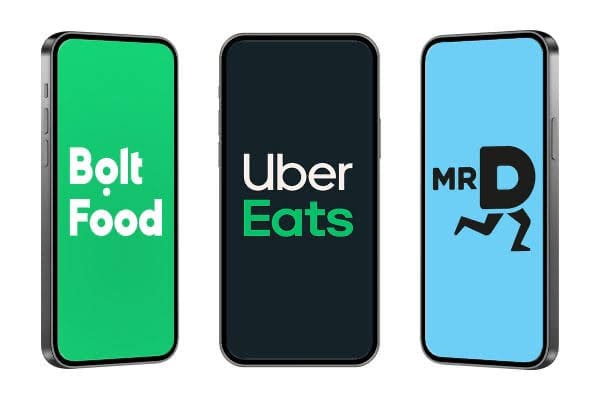When Thandiwe Hlatshwayo opened her two-person burger kitchen in Soweto during the outbreak of the Covid-19 pandemic, joining food delivery apps felt like the smartest way to grow her business.
Orders came in fast, her brand was listed alongside national chains and going digital felt like a major step forward.
But five years later, she has made a tough call.
“It just doesn’t work anymore,” she told Vutivi News. “By the time I pay for ingredients, packaging, electricity, staff and the platform fees, there is no money left. I am working for the app, not for my business.”
Hlatshwayo is one of many small food entrepreneurs leaving third-party delivery apps.
What was once seen as a powerful tool for access and growth has become a costly burden that drains resources and leaves razor-thin margins.
Most operators report paying between 20% and 30% commission per order, absorbing additional costs like disposable packaging and rising ingredient prices, all while dealing with unpredictable electricity supply and customer satisfaction ratings tied to deliveries they do not control.
Neo Mokgotsi, who runs a grill kitchen from his home in Kempton Park, said he initially saw delivery apps as a gateway to new customers.
“But each month, I was earning less and spending more,” he said.
“Some weeks I would lose money after the platform took its cut. It just did not make sense anymore.”
While larger restaurants may be able to offset these costs through volume, small vendors say they lack the scale or operational muscle to absorb such high overheads.
A 2024 survey by the Township Business Council found that over 60% of food SMEs operating through delivery platforms made under R5000 in net profit per month — despite handling dozens of orders each week.
The report also cited rising operational expenses and rigid app fee structures as the top challenges undermining small food businesses.
In some cases, vendors reported being penalised for issues beyond their control, such as delays caused by third-party drivers or miscommunication during peak hours resulting in low customer ratings, which in turn reduced visibility on app platforms.
For small entrepreneurs with no dedicated delivery staff or marketing teams, these penalties can be devastating.
“It’s like being punished for playing by the rules. If you can’t afford a delay or a refund, you’re basically out of the game,” lamented Mokgotsi.
Some businesses are now turning to more direct options such as WhatsApp orders, independent bike couriers or community-based delivery groups.
These allow entrepreneurs to maintain direct customer relationships, set more favourable pricing and avoid the costs associated with third-party platforms.
But not everyone has the resources or tech knowledge to build these alternatives, especially informal traders and low-income entrepreneurs. Without structural reforms or SME-friendly models from delivery platforms, many small businesses are being forced offline.
“People say the future is digital, but for us, the digital future has turned into a trap. We need systems that support our reality, not models that take everything we earn,” Hlatshwayo said.































































